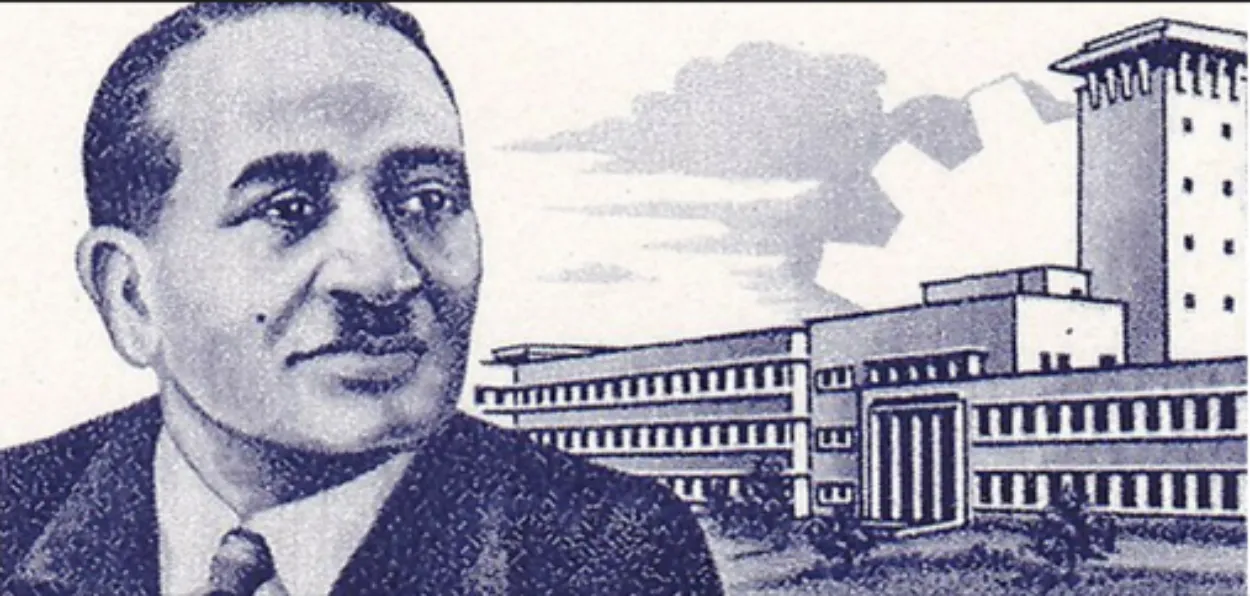
Saquib Salim
Sir Shanti Swarup Bhatnagar, the first Director General of the Council of Scientific and Industrial Research (CSIR) and the first Chairman of the University Grants Commission (UGC), is one of the most famous scientists India has produced in the last century.
While Bhatnagar’s scientific research and his role in formulating policies in post-independent India are well known, his love for Urdu literature and language remains unsung. Very few know that he expressed a “desire to live in a rural area after his retirement where he thought to take up farming. When free from farming activities he would devote himself to chemistry and poetry in Urdu.”
Though, he did not live long to live that life he published a collection of his Urdu poems Lajwanti after his wife’s name.
Lajwanti published in1946, after the death of his wife, has love poems. It was Lajwanti who was keen to get her husband’s poems published. She had once collected all his poems and sent them to Faiz Jhinjhanvi. Unfortunately, these got stolen.
After her death when Bhatnagar opened her metal box which contained her personal belongings, he found bundles of papers. These contained his poems. Lajwantic carefully collected papers on which Bhatnagar wrote poems and forgot about them. As a tribute to his caring wife, Bhatnagar got those poems published, soon after her death.
Bhatnagar’s love for Urdu was in his genes. One of his maternal grandfathers Munshi Hargopal Tufta, was a poet and a friend of Mirza Asadullah Khan Ghalib. Ghalib and Tufta’s closeness is well known among Urdu literati.
Ghalib had once remarked that Tufta was the only man with whom he could never be angry. On Ghalib’s death, Tufta wrote,
“Ghalib was he who, by loving patronage,
Made known thousands of humble men like me.
Excellence Integrity - Beauty - Love
Words his death has severed from head and feet.” Translated by Bhatnagar’s biographer Norah Richards)
A true successor to Tufta’s legacy, Bhatnagar donated the 'Tufta Collection' to Lahore University's Library It included a rare Persian translation of Mahabharat for which Bhatnagar received an honorarium from the University.
Bhatnagar’s first school was a Maktab (a primary school where the medium of instruction was Urdu) in Sikanderabad (Bulandshahr, U.P).
Norah Richards notes, “He was a terror to his teachers and this day is quite good at leg-pulling. He used to tease them by asking uncomfortable questions. A precocious young man, he was more knowledgeable than his teachers in subjects like Urdu poetry. He did not hesitate to point out flaws in their exposition, but this he did in a jocular manner that yet was bold.”
In 1908, Bhatnagar shifted to Lahore and joined the Dyal Singh High School. Here again, his teachers noticed his understanding of Urdu literature and grammar. Subodh Mahanti writes, “Bhatnagar's literary attainments particularly in Urdu were highly acclaimed. He was so proficient in Urdu grammar and Urdu poetry that his teachers felt that his attendance in these classes was unnecessary.”
When Bhatnagar entered Lahore University in 1911, his talent for writing Urdu attracted the attention of Nirah Richards, whose husband was a Professor of English and she herself mentored a theatre group at the University. He joined theatre and apart from acting started writing plays. His one-act Urdu play Karamat (wonder-worker) received the first prize of Rs. 15, a royal amount in those days.
Richards later wrote, “His play Karamat, was characteristic of the Bhatnagar of the future. It satirized the superstitious healing of a Bhagat who was also a rogue, and showed the superiority of the healing that was scientific. This play won the distinction of being banned by the Censor, in the person of the then Principal, the successor to Mr. Welinkar, who feared it would give offence to Hindu sentiment.”
Even after he left college and became engaged with science, Bhatnagar kept writing Urdu literature. Richards wrote that he would translate Shakespeare into Urdu so that they could be sung by students with Indian music.
ALSO READ: Rejuvenated India-Greece ties also counter Pakistan-supporter Turkiye
In his foreword to Lajwanti, Sir Tej Bahadur Sapru wrote, “Your (Bhatnagar’s) expertise in Urdu literature is not second to your mastery of sciences”.
